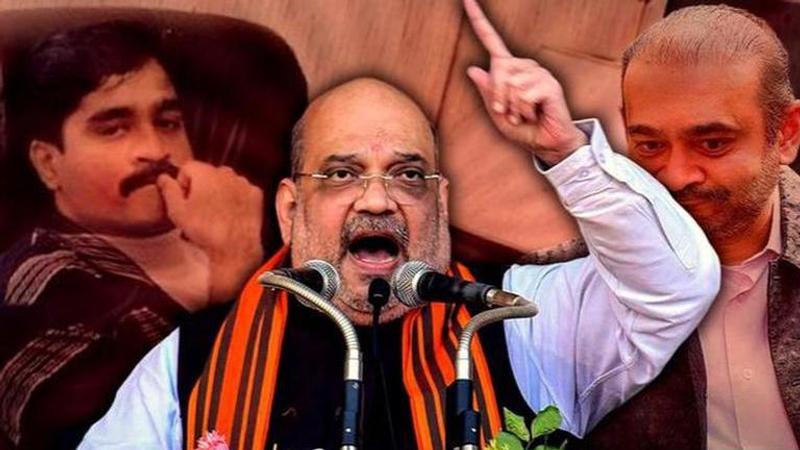Published 20:39 IST, August 11th 2023
Trial in Absentia to ensure punishment for wanted criminals and fugitives: Amit Shah
Union Home Minister Amit Shah said that the proposed provisions will ensure punishment for criminals and fugitives like Dawood Ibrahim and Nirav Modi.

Union Home Minister Amit Shah, on Friday, introduced three bills in the Lok Sabha to replace the Indian Penal Code (IPC), the Criminal Code for Procedure (CrPC) and the Indian Evidence Act. These law codes will be replaced by the Bharatiya Nyaya Sanhita Bill, the Bharatiya Nagarik Suraksha Sanhita Bill and the Bharatiya Sakshya Bill, respectively. Shah announced that several changes have been introduced and new ones have been added to these Bills including a law on mob lynching, definition of terrorism and mandating the collection of electronic evidence.
Among these changes is the introduction of Trial in Absentia which will allow trials on wanted criminals and fugitives who have escaped India. This law would allow trials on criminals like Dawood Ibrahim, the 26/11 attack accused Tahawur Husain Rana and fugitive businessman Nirav Modi.
In Lok Sabha, Union Home Minister Amit Shah decodes how the new Bill on IPC will deal with fugitives like Dawood Ibrahim and other fugitives. #AmitShah #HomeMinister #LokSabha #MonsoonSession2023 #MonsoonSessionofParliament #IPC
— Republic (@republic) August 11, 2023
WATCH #LIVE here- https://t.co/5C8MAHsMNQ pic.twitter.com/1U5VGltxxH
"Dawood Ibrahim is wanted in many cases (but) he ran away. We have decided that whoever is declared a fugitive by a Sessions Court judge after the due procedure, the trial will be conducted in their absence and they'll be punished, no matter where they are hiding," Shah said in the Lok Sabha.
Other provisions introduced in the Bills
In addition to this, the Bills have made several changes to the existing provisions and introduced new ones including the digitisation of the investigation process and collection of evidence. Among the changes are the digitisation of the process of FIR registration, the use of video conferencing during trials and the videography of victims of sexual crimes while recording their statements. The Bills also propose making digital evidence admissible in court and videography of all evidence collected during raids. This is an effort to make all police stations and courts in the country digital within 7 years.
The new Bills have been introduced with changes to do away with the British legacy which formed a large part of India's judicial process. The Bills were framed after consultation with various stakeholders including Justices from Law Universities, Chief Ministers, Governors, the Supreme Court and High Courts.
The Bharatiya Nyaya Sanhita, if passed by the Parliament, will repeal 22 provisions of the IPC, change 175 existing provisions and introduce eight new Sections. The Bharatiya Nagarik Suraksha Sanhita will repeal nine provisions of the CrPC, change 160 provisions and introduce nine new provisions. Lastly, the Bharatiya Sakshya Bill will repeal five existing provisions of the Evidence Act, change 23 provisions and introduce one new provision.
Updated 21:17 IST, August 11th 2023




